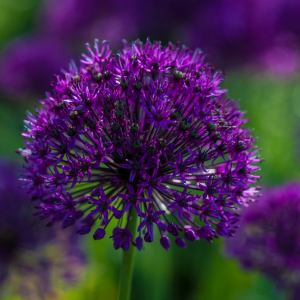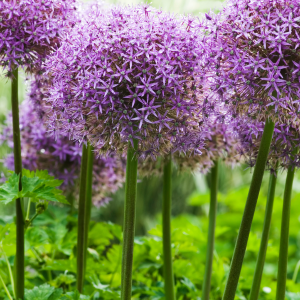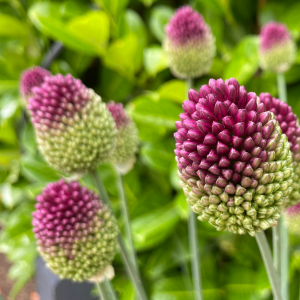Allium Moly
Our focus has always been on quality, true to name products, on time delivery, competitive pricing, and the largest selection in the industry.
This very special ornamental onion is a plant that most people often do not recognize as an ornamental onion. This species differs from other Alliums but isn’t less spectacular. The Allium Moly should be in every colorful garden. The bright yellow star-shaped flowers show off from late Spring to early summer.
How to grow Allium Moly
- Plant the wholesale bulbs from De Vroomen in Fall.
- The bulbs grow best in full sun, but they do appreciate some late afternoon shade in hot summers.
- The Allium Moly tolerates a wide range of soils but grows best in rich, sandy loams.
- Space the bulbs two or three inches apart.
The plant naturalizes, both by self-seeding and by offsets. The Allium Moly naturalizes slower than its family members but can colonize a flower bed quickly.
Yellow garlic, golden garlic
This superb plant has several nicknames, like yellow garlic, golden garlic, and lily leek. Many gardeners love the golden garlic. The long-lasting flowers make a beautiful display in the garden. After a year, gardeners will enjoy more golden garlic in their yard because of the naturalization process. After the second year, we advise to gently dig up the bulbs and replace the bulblets away from the mother’s lamp. Allium Moly bulbs can also be dried after blooming and replaced during Fall. Gardeners remove the bulbs from the ground around September and plant them back in the land around Fall. Removing Allium Moly bulbs from the ground, and planting the bulblets on a different spot, helps to avoid diseases.
How to take care of the Allium Moly
Alliums love a sunny spot in the backyard if the bulbs are planted in nutritious and well-drained soil. Sandy, dry soils with excellent drainage suit best for Allium Moly bulbs. Other summer flower bulbs like Geraniums make a dazzling display if combined with Allium Moly. Alliums are perfect for creating beautiful combinations in borders. We love Allium Moly, for its bright color and the remaining low growth.



